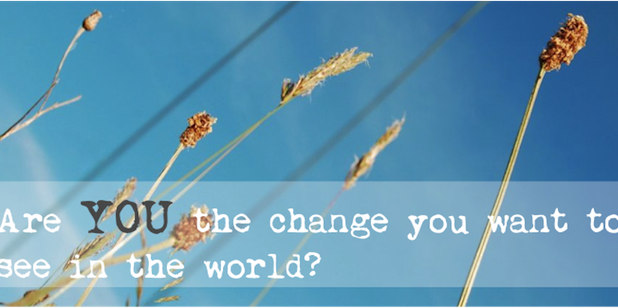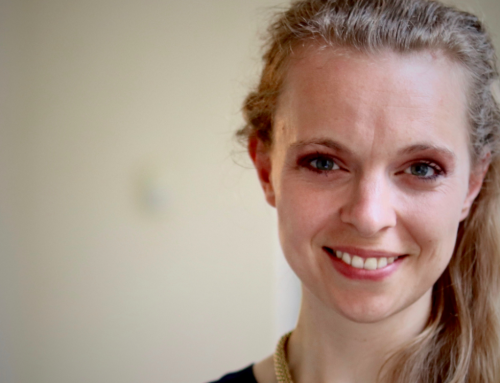Passion. Purpose. Plan. Partner. Profit.
Do you have what it takes to be a Social Entrepreneur?
A great article by Monika Mitchell, published in the Huffington Post Social Entrepreneurship.
Being an entrepreneur is not for everyone. It takes vision, guts, dedication, and luck according to the experts below. Harvard professor Allen Grossman defines entrepreneurship as “an activity or behavior” that involves “the pursuit of opportunity regardless of the resources you currently control.” Social entrepreneurship takes that one step further by including the objective of creating “pattern-breaking social change.” Social entrepreneurs are driven by these dual objectives: make a living and make a difference.
Tom’s Shoes for example; the privately held for-profit social enterprise Tom’s Shoes’ purpose is to sell shoes for a profit. Yet the company’s purpose is equally to supply shoes to barefoot children around the world. Without its revenue base, the company could not sustain itself. Without its social mission, it would not be profitable. For Tom’s, social purpose is the basis for its business model.
These dual goals make it even more challenging to sustain social ventures. Whether for-profit, nonprofit, or hybrid, all enterprises need to find customers and build community support.The following 5 P’s of Social Entrepreneurship are the five basic ingredients for success as a sustainable social enterprise. Defining these for your venture before you launch or as you grow will help you create a thriving profits-with-purpose business.
1.Passion
Earlier this year, James Stephenson from Entrepreneur.com named the number one ingredient for success as an entrepreneur: “Do what you enjoy!” This is what separates social entrepreneurs from the rest of the startup world. For social entrepreneurs, doing what you enjoy is a given. Yet, how can you turn your passion to make a difference into something financially sustainable?
Columbian native and social entrepreneur, Valeria Patterson turned her passion for eco-sustainability into a retail store on Avenue A at 9th Street. Sustainable-NYC opened in 2008 and calls itself an “Eco-General Store,” selling everything from Tom’s Shoes, organic chocolate, to recycled postcards. The charming Argentinian native advises passion-preneurs with:”Don’t think:I’m going to be rich. You put your heart in it and just keep going!” The key to her first successful 5 years through a major economic crisis in one of the most expensive cities to do business in the world is her eco-conscious model. Valeria declares, “When you support local and green, you do it little by little. You will see the good things that come from that!”
2. Purpose
Going to work with an uncompromised social purpose is increasingly attractive to entrepreneurial souls! Adnan Mahmud, co-founder of Jolkona, a Seattle-based impact investment firm, helps social entrepreneurs in Indonesia and his native Bangladesh succeed. Mahmud left a secure career as a project manager at Microsoft and never looked back. He states: “A successful social entrepreneur is someone who has found the right balance: doing good while doing well.”
Closer to home on Manhattan’s west side, an innovative young company, Return On Change, incorporates “profits with purpose” into its core business model. An online equity crowdsourcing platform, RoC helps socially conscious ventures raise capital through a “powerful community of supporters and investors.”
Early in his career, Sang Lee, the energetic founder and native New Yorker, worked as an investment banker at the French bank, BNP Paribas in its midtown location. His introduction to finance coincided with the worst global economic crisis in eight decades. Five years later, after witnessing the fallout of risky and reckless banking, Lee founded “Return on Change” to offer investors a socially conscious alternative. Says Lee: “Business doesn’t have to be harmful to the community or the environment to succeed. The new model for this century is to profit with a clear social purpose that benefits all stakeholders.”
3.Plan
Devin Thorpe, author of “Your Mark on the World,” claims that a well-articulated vision is more valuable to an entrepreneur than a great business plan. Claims Thorpe, the real value of a business plan is “the exercise an entrepreneur completes with her team to help figure out exactly what to do.”
HBR Blogger and venture capitalist, Anthony K. Tjan, takes this a step further. He says that most successful business ideas originate in “a place we call the Heart.” The author of the 2012 book called, “Heart, Smarts, Guts, and Luck,” Tjan writes: “At a business’s inception, resources are limited, and the best content for a business plan is real-world data based on testing aspects of the concept. These experiments need not be complex. You want simple, iterative tests that are easily measurable and let you know whether you are winning or not.”
Social entrepreneur strategist and digital media expert, Shane Snipes agrees that testing your idea is important. The former CTO of Environmental Defense Fund helps clients outline a clear vision and strategy, then encourages experimenting to see how it works. Snipes advises startups to create a “1.0 version” before adding the 2.0 and 3.0 bells and whistles. “Test it out with small groups of target customers and don’t be afraid of honest feedback.”
In “Lean StartUp” terms, the best entrepreneurs adapt and modify their vision as they evolve. Bestselling author and serial entrepreneur, Eric Reis says get the early version out quickly. He and his cofounders at IMVU, a successful online social entertainment company, rushed its original product out in six months. Reis admits, “The first version was terrible…Nobody even tried our product.” That gave Reis and his team time to build customer flow and fix problems along the way.
4. Partner
Strategic partnerships between like-minded companies can help early stage businesses grow. The success of social enterprises depends more than most ventures on building community. Forbes writes, “One of the biggest mistakes business owners make is trying to do everything alone.” When a new business lacks resources or skills, building your network through strategic partnership helps “both of you achieve more success.”
Collaboration is the fastest growing business tool in the social enterprise arsenal. It even has a name: Collaborative or Shared Economy. One of the most innovative and productive examples of sharing resources are co-working spaces. Entrepreneurs at 3rd Ward, the Foundry, AlleyNYC, WeWork, General Assembly, and incubators aound the U.S. and elsewhere form communities of mutual support for early stage companies.
The collaborative community of choice for social entrepreneurs is Centre for Social Innovation (CSI) in New York’s fashionable west Chelsea section. (Full disclosure: GoodB is a founding member.) Originating in Toronto, the six-month old NYC location provides affordable meeting and workspace, workshops, and networking events to support social good initiatives. Most of all, CSI supports a like-minded community of entrepreneurs who are dedicated to changing the world for the better.
5. Profit
So now what? You have limitless passion, clearly defined purpose, a well-articulated plan, and solid strategic partners, but if you don’t produce revenues, you’re not in business. Unless you have a large donor base or personal fortune to draw from, you need to create a sustainable financial plan.
LaborVoices “utilizes mobile technology to solve human rights issues within global supply chains.” Founder, Kohl Gill, a PhD in semiconductor physics, found a sustainable way to hold suppliers accountable to brands. LaborVoices connects “workers with each other” and enables them “to report their working conditions” safely through mobile phones. Name brands pay the two-year-old for-profit tech company to insure accountability by keeping tabs on supplier worker conditions.
Finding seed and growth capital is one of the most challenging factors for any entrepreneur. For social enterprises, the dual purpose makes it even tougher to find investors. Echoing Green, Acumen Fund, Ashoka, Skoll, BALLE, and Gates Foundations are just a few of the organizations offering fellowship grants to mission-based entrepreneurs.
The equity crowdsourcing model introduced by RoC and similar platforms is establishing an entirely new asset class of social impact investments. Currently available only to “accredited” investors, the 18 month-old Jobs ACT is moving slowly toward opening up the market for others to participate. When the SEC finally regulates the new rules, ordinary investors who believe in “pattern-breaking social change” products or services will be able to support businesses of their choice. That’s when real change in the social impact sector will accelerate. Until then, “reward-based” crowdfunding platforms like IndieGoGo, Kickstarter, and RocketHub offer modified solutions for raising capital.
Despite these challenges, the rugged, innovative, and creatively resourceful world of social entrepreneurship is growing by leaps and bounds. Righting the world’s wrongs is enough motivation to fuel the engines of thousands of entrepreneurial pioneers.







